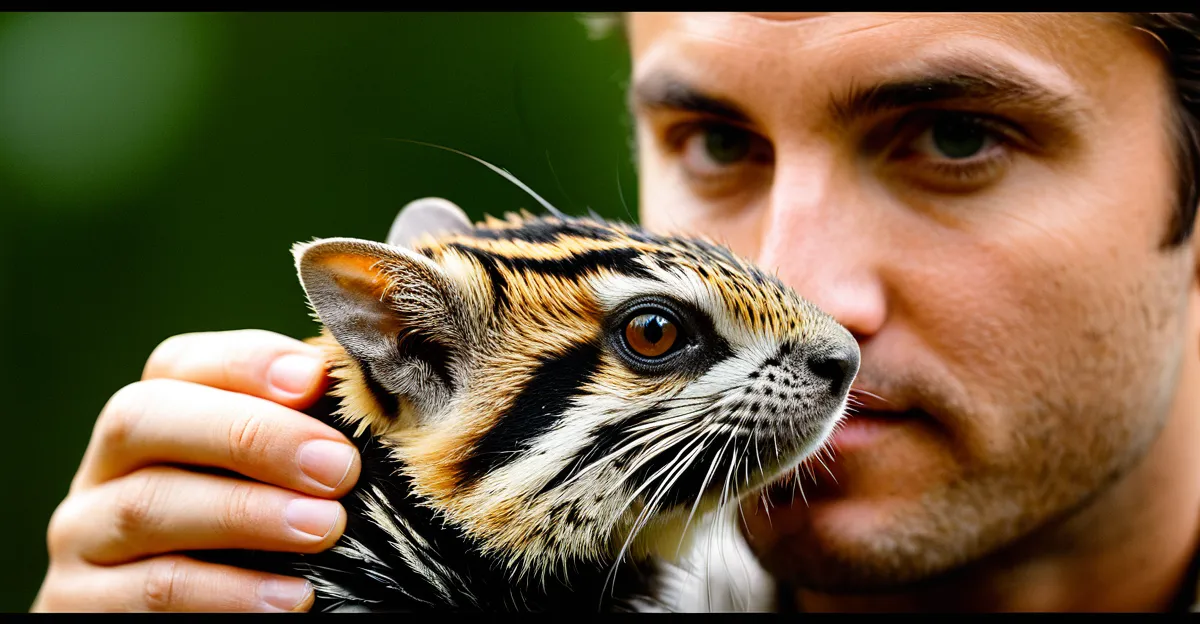Overview of Exotic Pet Ownership Laws in the UK
Understanding UK exotic pet laws is essential before bringing any exotic animal into your home. The legal framework aims to balance animal welfare with public safety and environmental concerns. These legal requirements regulate ownership to ensure exotic pets are kept responsibly and humanely.
Key to this framework are comprehensive animal regulations that specify which species can be owned, the conditions they must be kept in, and mandatory licensing where applicable. The laws also address issues like preventing cruelty and controlling species that might pose a risk to native wildlife.
In parallel : How do UK laws impact pet ownership?
Before acquiring an exotic pet, potential owners must familiarize themselves with their legal obligations. This includes knowing any restrictions on species, the need for permits, and compliance with welfare standards mandated by law. Failure to comply may lead to penalties and legal action.
In sum, following UK exotic pet laws is crucial for protecting the animals, the public, and the environment. Fully understanding the responsibilities and restrictions under these animal regulations helps ensure a safe and ethical exotic pet ownership experience.
Have you seen this : What are the essential pet supplies for UK residents?
The Dangerous Wild Animals Act 1976 and Other Key Legislation
The Dangerous Wild Animals Act 1976 is a cornerstone of UK animal law governing exotic pet ownership. It requires owners of specified dangerous animals to obtain a licence from their local authority. This ensures adequate safety measures are in place to protect the public and animal welfare. Animals listed under this act include large carnivores, primates, and certain reptiles.
In addition to this act, the Animal Welfare Act 2006 plays a crucial role by defining owners’ responsibilities toward their animals. It mandates that all exotic pet owners meet minimum standards of care, emphasizing the importance of preventing suffering.
Other legal statutes contribute by regulating import, sale, and transportation, reinforcing a comprehensive legal framework. These laws evolve continually, reflecting new scientific understanding and public safety concerns. For example, ongoing governmental consultations review the scope of species covered and licence conditions under the Dangerous Wild Animals Act.
Understanding these statutes is vital for compliance. They establish the necessary legal requirements to ensure exotic pet ownership is both responsible and lawful in the UK.
Restricted and Banned Exotic Species in the UK
The legal animal list under UK exotic pet laws categorises species into those restricted or banned outright. The UK prohibits ownership of species deemed dangerous to public safety, native wildlife, or animal welfare. This includes large carnivores, certain primates, venomous reptiles, and invasive species.
Species requiring licences often present a higher risk due to their behaviour, potential to spread disease, or environmental impact. The criteria for this designation consider factors like aggressiveness, size, and ecological threat. For example, non-native constrictor snakes are often restricted due to escape risks affecting local ecosystems.
Owners must consult this legal animal list before acquiring any exotic pet to ensure compliance with UK exotic pet laws. Failure to observe restrictions can lead to seizure, fines, or even criminal charges.
Understanding these restrictions protects not only the owner but also public health and biodiversity. It ensures that animal regulations enforce sensible controls, balancing interest in exotic species against safety and conservation priorities. Compliance with these legal requirements safeguards all parties involved and helps maintain responsible ownership standards.
Licensing Requirements for Exotic Pet Owners
Obtaining a licence is mandatory under the Dangerous Wild Animals Act 1976 for owners of certain exotic species listed in UK law. The licensing process involves applying to the local authority with detailed information about the animal, housing arrangements, and safety measures. Authorities evaluate applications against strict criteria focused on public safety and animal welfare.
Before approval, an inspection verifies that enclosures comply with animal regulations, ensuring secure containment and suitable living conditions. Requirements include proper ventilation, hygiene standards, and emergency protocols. Licence holders must also demonstrate knowledge of the species’ needs and legal responsibilities.
The licence is typically time-limited and subject to renewal, requiring ongoing compliance with conditions set by the local authority. Renewal inspections monitor continued adherence to welfare and safety standards. Failure to meet these legal requirements can result in licence refusal or revocation.
Costs and required documentation vary by authority but generally include proof of identity, detailed animal information, and fees covering processing and inspections. Understanding and fulfilling the licensing obligations is essential for lawful and responsible exotic pet ownership under UK exotic pet laws.
Duty of Care and Welfare Obligations
The Animal Welfare Act 2006 sets out clear animal welfare obligations that every exotic pet owner in the UK must follow. This law requires owners to provide their pets with suitable environments, proper diet, and protection from pain, suffering, injury, or disease. Not meeting these legal requirements is considered an offence.
Owners bear full responsibility for meeting minimum care standards. This includes ensuring adequate space, temperature control, and mental stimulation appropriate to the species. For example, many exotic reptiles need carefully controlled humidity and heat levels.
Authorities actively monitor compliance through inspections and reports from the public. Noncompliance with welfare animal regulations can lead to fines, seizure of animals, or even prosecution. Enforcement serves both to protect exotic animals and to uphold the integrity of the legal framework.
Understanding these care obligations is vital. It empowers owners to create a safe, healthy environment for their pets and avoid the serious consequences of neglect or cruelty as defined under the Animal Welfare Act. Meeting these requirements complements licensing laws, forming a comprehensive approach to responsible exotic pet ownership in the UK.
Rules on Importing and Exporting Exotic Pets
Importing and exporting exotic pets in the UK is governed by strict exotic pet import rules designed to protect animal welfare, public health, and native ecosystems. Central to these regulations is compliance with the Convention on International Trade in Endangered Species of Wild Fauna and Flora (CITES), which controls cross-border movement of listed species to prevent exploitation.
Before importing an exotic animal, owners must secure permits demonstrating that the trade complies with UK and international animal regulations. These permits require detailed documentation, including the origin of the animal, health certificates, and evidence of legal acquisition. Failure to present these documents can result in confiscation or fines.
Quarantine procedures play a crucial role in preventing disease transmission. Imported animals may be subject to mandatory isolation periods under supervised conditions, ensuring they do not pose a health risk to other animals or humans.
Transportation standards also form part of the legal requirements. Exotic pets must be transported in conditions that minimise stress and injury, complying with guidelines on enclosure size, ventilation, and handling.
These comprehensive rules underline the importance of thorough preparation and adherence to legal obligations when dealing with exotic pet import and export in the UK.




